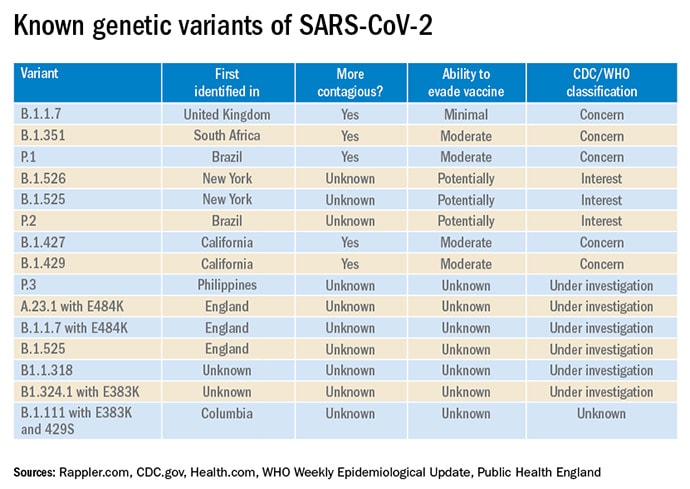The Centers for Disease Control and Prevention (CDC) and the World Health Organization (WHO) have established new criteria to classify variants of SARS-CoV-2, the virus that causes COVID-19.
The criteria are meant to clarify how much is known about recent changes to the circulating viruses. The levels also help convey risk.
The new designations are “variant of interest”; “variant of concern”; and “variant of high consequence.”
A variant of interest has caused discrete clusters of infections in the United States or in other countries or seems to be driving a surge in cases. It also has gene changes that suggest it might be more contagious or that may help it to escape immunity conferred by natural infection or vaccination. Therapeutics and tests may not work as well against it. The CDC is watching three of these.
A variant of concern has been proven through scientific research to be more contagious or to cause more severe disease. It may also reduce the effectiveness of therapeutics and vaccines. People who have previously had COVID-19 may become reinfected by the new strain. The CDC is tracking five of these.
A variant of high consequence causes more severe disease and greater numbers of hospitalizations. It has also been shown to defeat medical countermeasures, such as vaccines, antiviral drugs, and monoclonal antibodies. So far, none of the variants meets this definition.
Source: CDC.gov